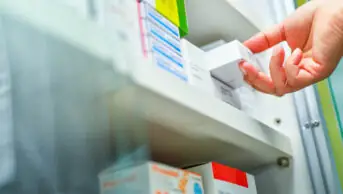
Shutterstock.com
Around £40m is paid to healthcare professionals in the UK each year by pharmaceutical companies. These payments are unidentifiable, made available on an aggregate basis.
However, from 30 June 2016, for the first time patients will be able find out if their doctor, pharmacist or other healthcare professional has received any payments from a pharmaceutical company. The payments, which could include being paid to attend a medical event or acting as an adviser to a pharmaceutical or medical device company, will be listed on a publicly searchable database called Disclosure UK. This will be hosted by the Association of British Pharmaceutical Industry (ABPI), the trade association of companies in the UK that produce prescription medicines.
This move towards transparency has been in the making since 2013, led by the European Federation of Pharmaceutical Industries and Associations, and will be applied to 33 countries in Europe in different ways. Some will have a central platform database like the UK, others will see disclosures of payments made on company’s own websites.
Some European countries, including France, Slovakia, Greece, Romania and Denmark, have gone one step further and have passed legislation to make disclosures of payments to healthcare professionals mandatory.
In the UK, disclosures will be made by the companies who pay the healthcare professionals but payments can only be included in the database if the healthcare professional gives consent because of data protection rules. As some healthcare professionals may decline to give consent, the public may never know who the biggest recipients of money are and which company paid them. Nevertheless, the ABPI database is a step in the right direction in bringing in much needed transparency on the relationship between companies and healthcare professionals.
The good news is that the road towards transparency does not end there. Health secretary Jeremy Hunt plans to go further in the UK by bringing in a ‘sunshine rule’ (so called because it mirrors the Physician Payment Sunshine Act in the United States) on dealings between NHS personnel and companies. Under the proposal, NHS staff found to be abusing their position by taking extravagant gifts or hospitality and lobbying for unneeded or overly expensive drugs could be punished with measures such as disciplinary action, dismissal or imprisonment. The sunshine rule will have teeth.
The public puts its trust in healthcare professionals and expects them to behave in an ethical way. In 2015, NHS England launched an investigation into allegations made in a Daily Telegraph report that highlights the practice of health officials being paid to advise pharmaceutical companies on the NHS use of their products (
The Pharmaceutical Journal 2015;295:105) . More recently, a
Telegraph investigation revealed on 18 February 2016 that more than one in three members of the government panel overseeing the NHS’s procurement of medicines across Britain (of which at least one had been identified as an NHS procurement pharmacist) had been carrying out paid work for pharmaceutical companies.
While some healthcare professionals actively avoid conflicts of interest, others see benefits of collaboration with pharmaceutical companies in areas such as research. The introduction of a database is a welcome initiative and marks a step towards making relationships between healthcare professionals and the industry more transparent, but it remains to be seen how it works in practice and whether it has any impact on patients.


